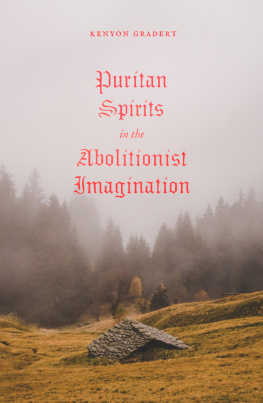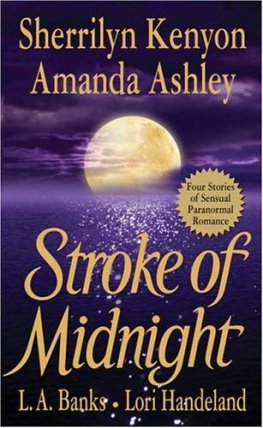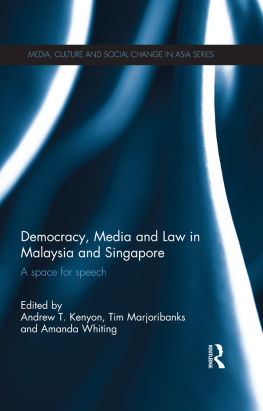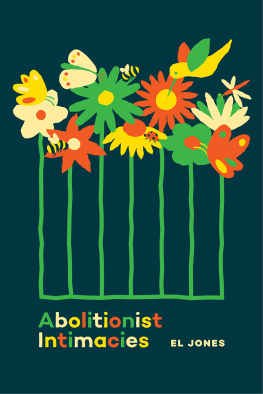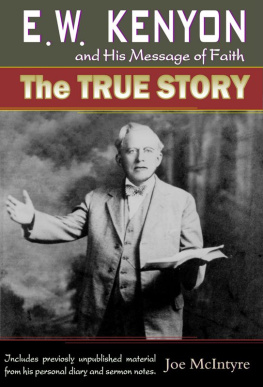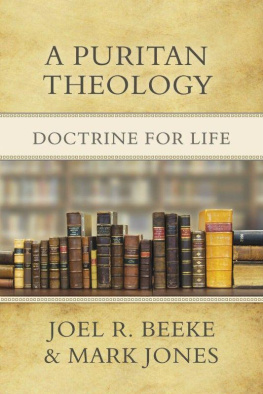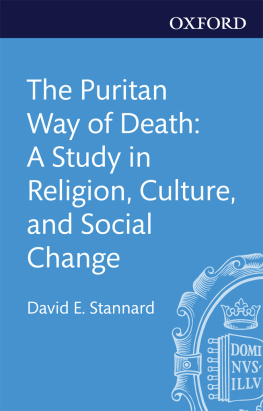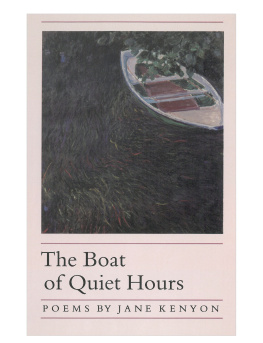Puritan Spirits in the Abolitionist Imagination
American Beginnings, 15001900
A Series Edited by Edward Gray, Stephen Mihm, and Mark Peterson
Also in the series:
Trading Spaces: The Colonial Marketplace and the Foundations of American Capitalism
by Emma Hart
Urban Dreams, Rural Commonwealth: The Rise of Plantation Society in the Chesapeake
by Paul Musselwhite
Building a Revolutionary State: The Legal Transformation of New York, 17761783
by Howard Pashman
Sovereign of the Market: The Money Question in Early America
by Jeffrey Sklansky
National Duties: Custom Houses and the Making of the American State
by Gautham Rao
Liberty Power: Antislavery Third Parties and the Transformation of American Politics
by Corey M. Brooks
The Making of Tocquevilles America: Law and Association in the Early United States
by Kevin Butterfield
Planters, Merchants, and Slaves: Plantation Societies in British America, 16501820
by Trevor Burnard
Riotous Flesh: Women, Physiology, and the Solitary Vice in Nineteenth-Century America
by April R. Haynes
Holy Nation: The Transatlantic Quaker Ministry in an Age of Revolution
by Sarah Crabtree
A Hercules in the Cradle: War, Money, and the American State, 17831867
by Max M. Edling
Frontier Seaport: Detroits Transformation into an Atlantic Entrept
by Catherine Cangany
Beyond Redemption: Race, Violence, and the American South after the Civil War
by Carole Emberton
The Republic Afloat: Law, Honor, and Citizenship in Maritime America
by Matthew Taylor Raffety
Conceived in Doubt: Religion and Politics in the New American Nation
by Amanda Porterfield
Puritan Spirits in the Abolitionist Imagination
Kenyon Gradert
University of Chicago Press
CHICAGO & LONDON
PUBLICATION OF THIS BOOK HAS BEEN AIDED BY A GRANT FROM THE BEVINGTON FUND.
The University of Chicago Press, Chicago 60637
The University of Chicago Press, Ltd., London
2020 by The University of Chicago
All rights reserved. No part of this book may be used or reproduced in any manner whatsoever without written permission, except in the case of brief quotations in critical articles and reviews. For more information, contact the University of Chicago Press, 1427 E. 60th St., Chicago, IL 60637.
Published 2020
Printed in the United States of America
29 28 27 26 25 24 23 22 21 20 1 2 3 4 5
ISBN-13: 978-0-226-69402-3 (cloth)
ISBN-13: 978-0-226-69416-0 (e-book)
DOI: https://doi.org/10.7208/chicago/9780226694160.001.0001
Library of Congress Cataloging-in-Publication Data
Names: Gradert, Kenyon, author.
Title: Puritan spirits in the abolitionist imagination / Kenyon Gradert.
Other titles: American beginnings, 15001900.
Description: Chicago : University of Chicago Press, 2020. | Series: American beginnings, 15001900 | Includes bibliographical references and index.
Identifiers: LCCN 2019049760 | ISBN 9780226694023 (cloth) | ISBN 9780226694160 (ebook)
Subjects: LCSH: Antislavery movementsUnited StatesHistory19th century. | PuritansPolitical activityUnited StatesHistory19th century.
Classification: LCC E449 .G73 2020 | DDC 326/.80973dc23
LC record available at https://lccn.loc.gov/2019049760

This paper meets the requirements of ANSI/NISO Z39.48-1992 (Permanence of Paper).
Contents
A gala woke the ghost of Myles Standish. On December 22, 1845, the renowned captain of the Pilgrims colonial militia was roused from his Duxbury grave by a Forefathers Day celebration across the Kingston Bay in Plymouth, held in honor of his Pilgrim and Puritan brethren.
Such rhetoric contributed to a nationalist narrative of Americas Pilgrim/Puritan origins that coalesced in the 1820s.
This was too much for the fiery Captain Standish. He marched for Cambridge to protest with a poet.
My name is Standish, the spectral captain declared as he materialized in the study of the young Brahmin James Russell Lowell. I come from Plymouth, deadly bored / With toasts, and songs, and speeches, he vented, scoffing at the idea that they understand us Pilgrims! they, / Smooth men with rosy faces. He grew angrier. These loud ancestral boasts of yours, / How can they else than vex us? / Where were your dinner orators / When slavery grasped at Texas?
The startled Lowell had scarcely stammered a halfhearted defense of compromise when Standish drew his broadsword, bellowing, God confound the dastard word. As quickly as he came, the spirit vanished with a final hope that this bleak wilderness might reclaim the glory of thy morrow.
Lowell scrambled to record his vision, knowing that neighbor Buckingham was made of Pilgrim-stuff that hates all sham, / And he will print my ditty. Indeed, Joseph T. Buckingham did publish Lowells cheeky yet militant poem in his influential Whig journal, the Boston Courier. So did Eliakim Littell in his popular middlebrow weekly Littells Living Age and William Lloyd Garrison in his radical abolitionist periodical the Liberator. The variety of venues hints that Lowell was striking a chord with a range of readers. Was their precious Puritan inheritancethis sacred fire of libertyindeed an antislavery torch in their own era?
Hundreds of abolitionists had cried Yes! since the movements inception in the 1830s. When the antislavery preacher and printer Elijah Lovejoy was killed by a proslavery mob in 1838, the orator Wendell Phillips praised his armed resistance as heir to the Puritans of Cromwells day. In fact, Americas most radical antislavery newspaper, the Liberator, invoked the Puritans over a thousand times in its weekly run from 1831 to 1865every other issue, on average. These writers used the Puritans not only to stoke an imaginative holy war against a major part of the American economy but also to support the public protest of female, working-class, and black Americans. Men from poor farm families like John Greenleaf Whittier and Parker Pillsbury found authority for their own protest in the Puritan past. Maria Weston Chapman, head of the Boston Female Anti-Slavery Society, authorized her controversial activism by casting herself as a neo-Puritan warrioress, and Lydia Maria Child even reimagined the Pilgrim myth as female antislavery militias fighting in Bleeding Kansas. Black writers like David Ruggles and William Wells Brown not only legitimized their own activism with the Puritan past but used it to elevate other black revolutionaries, praising the slave rebel Nat Turner and the Haitian revolutionary Touissaint Louverture as new Cromwells. Writers who experienced discrimination in a nation dominated by wealthy white men embraced this Puritan heritage as a platform for their own voices, using a legacy often figured as masculine and Saxon to claim their right to the kind of protest wielded by Brahmin peers like Lowell.
As the struggle with slavery grew more volatile in the decades before the Civil War, these Puritan spirits stoked increasingly militant visions of revolution. When the war with Mexico ended in 1848 with an ugly US victory, a vast expansion of slave territory, and a Congress still dominated by its architects, Lowell was so disgusted that he pined in the Liberator for one hour of that undaunted stock, / that went with Vane and Sydney to the block. Lionizing Puritan regicides, he effectively called for an American equivalent of the English Civil War and new regicides to decapitate King Cotton.
 This paper meets the requirements of ANSI/NISO Z39.48-1992 (Permanence of Paper).
This paper meets the requirements of ANSI/NISO Z39.48-1992 (Permanence of Paper).
